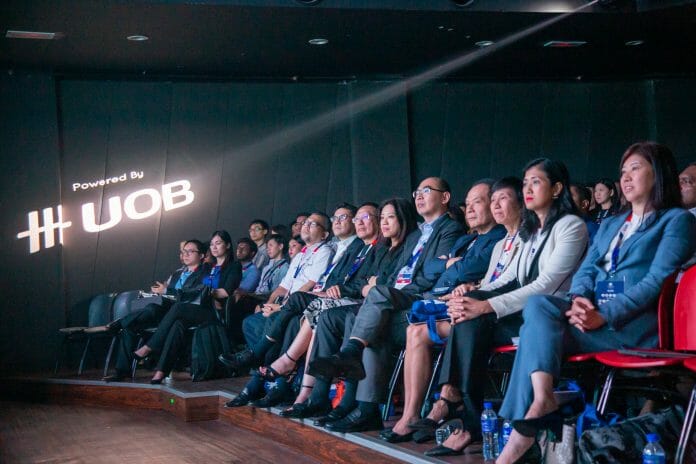In a conversation with BusinessToday, Pauline Sim, Head of The FinLab and Yap Kok Tee, Executive Director and Country Head of Channels and Digitalisation, UOB Malaysia share ways on how the Finlab has helped businesses digitise their operations and how banks play an important role on in assisting SMEs brace through storms.
“When we started The Finlab in late 2015, we were working largely with the tech startup community that was looking at innovative tech solutions. There were also startups coming to ASEAN wanting to work with financial institutions like UOB.
Later in 2018, there were rising emphasise to help SMEs achieve Industry 1.0 and regionally speaking, governments wanted to help businesses in their countries digitalised. And so, we designed a programme that enables businesses to adapt to digital transformations and be ready for the digital economy,” Sim shares.
The Finlab ran their business transformation pilot programme in 2018 in Singapore, followed by a run in Thailand and then brought it to Malaysia. They then partnered with UOB on curating the Jom Transform programme along with several other local partners.
The Jom Transform programme was launched in Malaysia in June 2019 and received interest from more than 900 businesses across the country.

“The Jom Transform programme was a very timely initiative. This was before the outbreak, but it fits very well now. And since the pandemic, UOB has partnered with MATTA and the Chinese Chamber of Commerce KL and Selangor together with MDEC and SME Corp to help SMEs,” Yap says.
Before coming to Malaysia, The Finlab worked with UOB Malaysia to understand the needs of SMEs on the ground to help them design a localised part of their programme. They further worked with local partners and agencies to validate the needs of tech startups applying for the Jom Transform programme.
What Finlab offers?
“Since we started the business transformation programme, we focused on key areas on innovation and digitalisation. After helping them identifying the problems and curating relevant tech solutions, we will go on to supporting them on implementing the solutions.
What the programme does is take a structured approach and guide them through it,” Sim says.
Sim further adds that when Covid-19 hit Malaysian shores, there was an increase in awareness among SMEs to digitalise and this required them to look back at their business model and to accept the need to digitalise.
“As we enter the new norm, customer behaviors have also changed significantly. This is the stage where businesses often try figure out ways to manoeuvre through the new environment and the sort of resources they need. So, through the Jom Transform programme, we are focusing on helping SMEs find the suitable price points for their services, and aiding them through the implementation process,” she tells BusinessToday.
From a bank’s perspective, Yap says SMEs needs to change their mindsets when it comes to customers and improving business processes. “They need to find the right tools, improve their digital marketing and identify the e-commerce route they want to go into. Banks can help them to do so as well.”
In Malaysia, when the Jom Transform programme was launched, 16 SMEs were shortlisted for participations. As for 2020, the programme saw more than 270 participants proving the wider reach it has achieved.
Both UOB and Finlab are optimistic that through the programme, SMEs get a bird’s eye view across three different countries and they will be able to learn different digitalisation processes as it differs across all three countries.
“We have our own tech solutions, and these help businesses venture into e-commerce and consider expansion plans as well.
Significant changes
Adjusting to the digital changes was not only restricted to SMEs and individuals, but even platforms also championing for digital transformations such as Finlab had to make some changes as well. Finlab is now building an online platform that would enable more resources for SMEs as well the necessary tools.
The website will offer them tools and guide to rethink and innovate their business strategies and narrow down the area and priorities in terms of digitalisations. The change in circumstances have pushed Finlab to deliver more offering online as well but Sim believes that face-to-face interaction is equally as vital and will take place as the situations comes into control.
“During the pandemic, we reached out to SMEs and through virtual methods, we realised that we were able to reach out to a wider audience and we have found the comfort in engaging with them within the digital space,” Yap says.
He believes this to be a unique circumstance as it helps to close barriers and increases efficiency.
“I think the acceptance of going digital is important as more Malaysians are transitioning into purchasing products via online spaces and they are realising the reliability of it. Both Finlab and UOB can facilitate SMEs here to do so more seamlessly,” Yap says.









